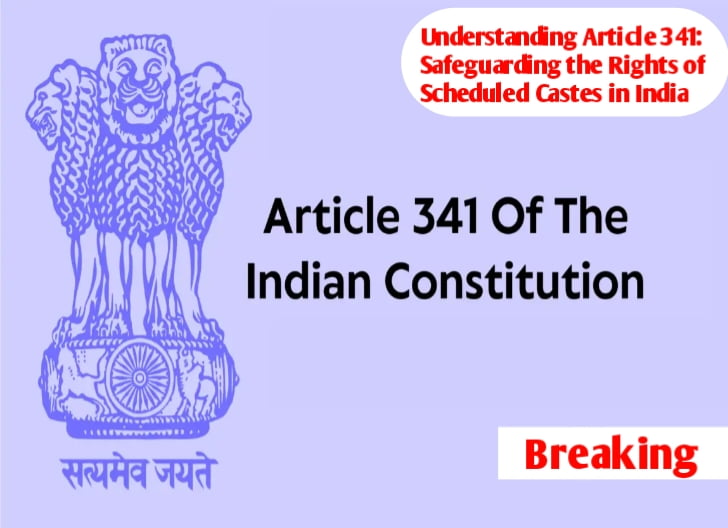Understanding Article 341: Safeguarding the Rights of Scheduled Castes in India
Introduction to Article 341
Article 341 of the Indian Constitution plays a crucial role in the protection and empowerment of historically marginalized communities in India, specifically the Scheduled Castes (SCs). This article outlines the criteria and procedures for identifying and granting special privileges to SC communities, ensuring they receive the benefits and protections necessary for their social and economic upliftment.
Key Provisions of Article 341
Article 341(1) empowers the President of India to specify, through a public notification, the castes, races, or tribes that shall be deemed to be Scheduled Castes in relation to each state or union territory. Once a community is included in this list, it gains access to a range of affirmative actions, including reservations in education, employment, and political representation, aimed at correcting historical injustices and promoting social equality.
Article 341(2) stipulates that any inclusion or exclusion of communities from the SC list can only be made by Parliament through a law. This provision ensures that the identification of SCs remains a rigorous and carefully monitored process, preventing arbitrary changes that could undermine the rights of these communities.
Historical Context and Evolution
The roots of Article 341 can be traced back to the Government of India Act of 1935, which first introduced the concept of Scheduled Castes. The framers of the Indian Constitution, recognizing the deep-seated social discrimination faced by these communities, incorporated this provision to provide them with special protections. Over the years, the list of Scheduled Castes has been periodically updated to include more communities as they demonstrate the requisite socio-economic disadvantages.
Impact and Significance
The significance of Article 341 lies in its role in enabling the social and economic advancement of SC communities. By granting them access to reservations in various sectors, the article has facilitated greater representation and opportunities for these historically marginalized groups. The affirmative actions enabled by Article 341 have played a pivotal role in breaking the cycle of poverty and social exclusion that many SC communities have endured for generations.
Challenges and Controversies
Despite its positive impact, Article 341 has also been the subject of various controversies and challenges. One of the primary concerns is the exclusion of certain marginalized communities from the SC list, leading to debates over the criteria for inclusion. Additionally, there have been instances where communities that have improved their socio-economic status continue to benefit from SC reservations, sparking discussions on the need for periodic reviews and revisions of the SC list.
Another contentious issue is the state-specific nature of the SC list. A community recognized as SC in one state may not have the same status in another, leading to discrepancies in the benefits received by members of the same community across state lines. This has prompted calls for a more uniform national policy.
Conclusion
Article 341 remains a cornerstone of India’s constitutional framework for social justice, ensuring that Scheduled Castes receive the necessary support to overcome historical disadvantages. While challenges persist, the article continues to be a vital tool in the fight against social inequality, empowering SC communities to achieve greater socio-economic mobility and integration into mainstream society.
How did you like the information given in our article today, please tell us in the comment section and for more such posts, follow our page The News House, thank you
Reed more… BOMB SCARE AT GURUGRAM’S AMBIENCE MALL: SWIFT ACTION ENSURES SAFETY


